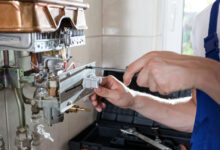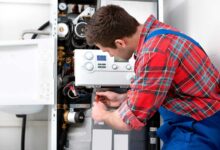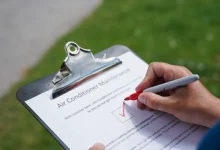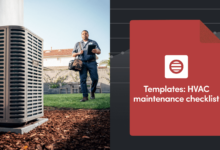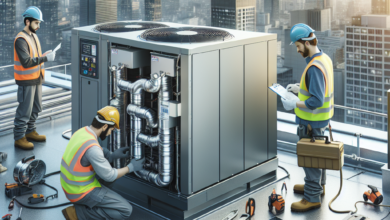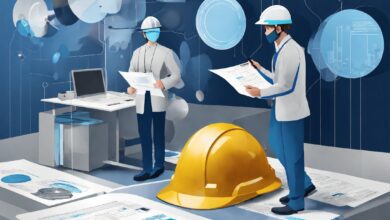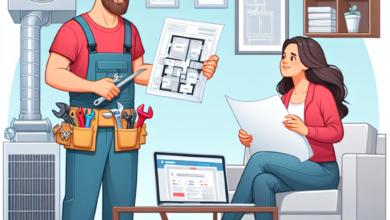How Often Should HVAC Maintenance Be Done?
How Often HVAC Maintenance – Regular HVAC maintenance is crucial for the efficient running and longevity of your heating, ventilation, and air conditioning system. It ensures optimal performance, energy efficiency, and helps prevent costly breakdowns. However, many homeowners are unsure about how often they should schedule HVAC maintenance. In this blog article, we will provide you with a detailed and comprehensive guide on the frequency of HVAC maintenance.
Annual HVAC Maintenance
Annual HVAC maintenance is a vital part of keeping your system functioning at its best. It is recommended to have a professional HVAC technician inspect and service your system once a year. During this annual maintenance visit, the technician will perform a comprehensive inspection of your HVAC system to identify any potential issues and ensure everything is in proper working order.
Inspection and Cleaning
During the annual maintenance visit, the HVAC technician will thoroughly inspect and clean various components of your system. This includes checking the thermostat settings, examining electrical connections, inspecting and cleaning the evaporator and condenser coils, and cleaning or replacing air filters. Cleaning the coils and air filters helps improve the system’s efficiency by removing dust and debris that can hinder airflow and reduce performance.
Checking Refrigerant Levels
Another important task during annual maintenance is checking the refrigerant levels in your HVAC system. The technician will ensure that the refrigerant is at the correct level, as low or high levels can indicate a leak or other issues that need to be addressed. Proper refrigerant levels are essential for the system to cool or heat effectively.
Lubricating Moving Parts
The HVAC technician will also lubricate all the moving parts of your system, such as motors and fans. This helps reduce friction and wear, ensuring smooth and efficient operation. Lubrication can significantly extend the lifespan of these components and prevent unnecessary breakdowns.
Testing System Performance
As part of the annual maintenance, the technician will test the overall performance of your HVAC system. This includes checking the airflow, measuring temperature differentials, and ensuring that the system is heating or cooling as intended. By conducting these tests, any potential issues can be identified early on and addressed promptly.
Seasonal Maintenance
In addition to annual maintenance, it is essential to perform seasonal maintenance on your HVAC system. This helps to optimize its performance during the specific heating and cooling seasons. It is recommended to schedule maintenance visits before each season change, typically in the spring and fall.
Replacing Air Filters
One of the crucial tasks during seasonal maintenance is replacing the air filters. Air filters play a vital role in maintaining good indoor air quality by capturing dust, pollen, and other airborne particles. Over time, these filters become clogged and less effective, hindering airflow. By replacing the filters, you ensure proper airflow and reduce strain on the system.
Checking Thermostat Settings
During seasonal maintenance, it is important to check and recalibrate the thermostat settings to ensure accurate temperature readings and proper functioning of the HVAC system. The technician will verify that the thermostat is calibrated correctly and that it cycles on and off as intended to maintain the desired temperature.
Cleaning Coils and Ductwork
Seasonal maintenance also involves cleaning the evaporator and condenser coils. Over time, these coils can accumulate dirt, debris, and even mold, which can impede their efficiency. The technician will clean the coils, ensuring optimal heat transfer and energy efficiency. Additionally, they may inspect and clean the ductwork to remove any dust or debris that can hinder airflow and reduce the system’s performance.
Testing and Adjusting System Controls
As part of seasonal maintenance, the HVAC technician will test and adjust various system controls to optimize performance. This includes checking the electrical connections, ensuring proper voltage and current flow, and calibrating any safety controls or limit switches. By testing and adjusting these controls, the technician can identify and rectify any potential issues that may affect the system’s performance or safety.
Monthly Maintenance
In addition to professional annual and seasonal maintenance, there are several monthly maintenance tasks that homeowners can perform to keep their HVAC system in good condition between professional visits.
Checking and Cleaning Air Vents
Regularly checking and cleaning the air vents in your home can help ensure proper airflow and prevent blockages. Remove any obstructions, such as furniture or curtains, that may be blocking the vents. Use a vacuum or a soft brush to clean the vents and remove any dust or debris that may have accumulated over time.
Clearing Debris around the Outdoor Unit
If you have an outdoor HVAC unit, it is important to regularly clear any debris, such as leaves, grass, or branches, from around the unit. Clearing the area around the outdoor unit ensures proper airflow and prevents debris from entering the system, potentially causing damage or reducing efficiency.
Inspecting the Condensate Drain
The condensate drain is responsible for removing excess moisture from your HVAC system. Over time, this drain can become clogged with dirt, algae, or other debris, leading to water leakage or mold growth. Regularly inspecting and cleaning the condensate drain can prevent these issues and ensure proper drainage.
Checking and Replacing Thermostat Batteries
If your thermostat uses batteries, it is a good practice to check and replace them regularly. Weak or dead batteries can cause inaccurate temperature readings or even complete system failure. By replacing the batteries, you ensure the thermostat functions properly and accurately controls the HVAC system.
Signs that Indicate the Need for Immediate Maintenance
While regular maintenance is essential, there are certain signs that indicate your HVAC system requires immediate attention from a professional. Recognizing these signs and acting promptly can prevent further damage and costly repairs.
Strange Noises
If you notice unusual noises coming from your HVAC system, such as grinding, rattling, or squealing, it is a clear indication that something is wrong. These noises can be caused by loose or damaged components, worn-out belts, or other mechanical issues. Ignoring these noises can lead to further damage and potential system failure.
Inconsistent Temperatures
If you find that some rooms in your home are consistently warmer or cooler than others, it may indicate an issue with your HVAC system. Inconsistent temperatures can be caused by ductwork problems, refrigerant leaks, or a malfunctioning thermostat. Having a professional inspect and address these issues can help restore even and comfortable temperatures throughout your home.
Foul Odors
Unpleasant odors emanating from your HVAC system can be a sign of mold or bacterial growth within the system. These odors can be circulated throughout your home, affecting indoor air quality. If you notice a persistent musty or foul smell, it is important to have your HVAC system inspected and cleaned to eliminate the source of the odor and maintain good air quality.
High Energy Bills
If you notice a sudden increase in your energy bills without any significant changes in usage, it may indicate an inefficient HVAC system. A system that is not operating optimally consumes more energy to achieve the desired temperature, resulting in higher utility bills. Having your HVAC system professionally inspected can identify and address any issues causing the excessive energy consumption.
Factors that Affect Maintenance Frequency
The frequency of HVAC maintenance can vary depending on several factors. By considering these factors, you can determine how often you should schedule maintenance visits to keep your system running smoothly.
Age of the System
The age of your HVAC system can impact how often maintenance is required. Older systems may require more frequent maintenance to ensure they continue to operate efficiently. Newer systems, on the other hand, may require less frequent maintenance, especially if they are still under warranty.
Frequency of Use
The frequency at which you use your HVAC system can also influence maintenance needs. If you rely heavily on your system year-round, it may require more frequent maintenance to keep up with the demand. Conversely, if you only use your system seasonally or infrequently, you may be able to schedule maintenance less frequently.
Local Climate
The climate in which you live can affect the maintenance needs of your HVAC system. In regions with extreme temperatures or high humidity, the system may experience more strain and require more frequent maintenance to cope with the conditions. Understanding the demands of your local climate can help you determine the optimal maintenance schedule.
Presence of Pets or Smokers
If you have pets or smokers in your household, your HVAC system may require more frequent maintenance. Pet dander, fur, and cigarette smoke can accumulate in the system, leading to reduced efficiency and potential health issues. Cleaning and maintaining the system more often can help mitigate these effects and ensure optimal performance.
Benefits of Regular HVAC Maintenance
Regular HVAC maintenance offers numerous benefits that make it a worthwhile investment for homeowners. By prioritizing maintenance, you can enjoy the following advantages:
Improved Indoor Air Quality
Regular maintenance, including cleaning or replacing air filters, cleaning coils, and inspecting ductwork, helps improve indoor air quality. Clean filters capture dust, pollen, and other airborne particles, preventing them from circulating throughout yourhome. Clean coils and ductwork prevent the buildup of mold, bacteria, and other contaminants that can negatively impact air quality. By ensuring clean and well-maintained components, you can breathe easier and enjoy a healthier indoor environment.
Extended Equipment Lifespan
Regular maintenance helps extend the lifespan of your HVAC equipment. By addressing minor issues and performing necessary repairs or adjustments, you prevent them from escalating into major problems that can cause extensive damage and lead to premature system failure. With proper maintenance, your HVAC system can serve you reliably for many years, saving you the cost and inconvenience of premature replacement.
Reduced Energy Costs
An efficiently running HVAC system consumes less energy, resulting in lower utility bills. Regular maintenance ensures that your system operates at peak efficiency by optimizing airflow, cleaning coils, and ensuring proper refrigerant levels. By keeping your system in top shape, you minimize energy waste and enjoy significant savings on your energy bills over time.
Enhanced System Performance
Maintaining your HVAC system regularly ensures optimal performance. When all components are clean, lubricated, and functioning properly, the system can cool or heat your home efficiently and evenly. You’ll experience consistent temperatures throughout your living spaces, eliminating hot or cold spots. A well-performing HVAC system also operates quietly, allowing you to enjoy a peaceful and comfortable home environment.
Increased Safety
Regular maintenance helps identify and address potential safety hazards associated with your HVAC system. Technicians inspect electrical connections, gas lines (if applicable), and other components to ensure they are in good condition and functioning safely. By detecting any issues early on, maintenance helps prevent hazards such as electrical fires, gas leaks, or carbon monoxide leaks, ensuring the safety of your home and family.
DIY vs. Professional Maintenance
While there are certain maintenance tasks homeowners can perform themselves, it is essential to understand the benefits of professional HVAC maintenance. While DIY maintenance can help you stay on top of basic tasks, professional maintenance offers several advantages that ensure comprehensive care for your system.
Expertise and Experience
Professional HVAC technicians have the knowledge, expertise, and experience to identify and address potential issues that may go unnoticed by homeowners. They are trained to recognize warning signs, troubleshoot problems, and provide effective solutions. Their expertise ensures that your system receives thorough maintenance and any underlying issues are addressed promptly, preventing more significant problems down the line.
Specialized Tools and Equipment
Professional HVAC technicians have access to specialized tools and equipment required for proper maintenance. They have diagnostic tools to measure airflow, identify refrigerant leaks, and check electrical connections. These tools allow them to perform accurate assessments and make precise adjustments, ensuring your system operates optimally.
Early Problem Detection
One of the key advantages of professional maintenance is the ability to detect potential problems early. HVAC technicians can identify issues that may not be apparent to homeowners, such as worn-out components, refrigerant leaks, or ductwork problems. By catching these issues in their early stages, technicians can prevent them from escalating into major breakdowns, saving you from costly repairs and inconveniences.
Compliance with Manufacturer Warranties
Many HVAC manufacturers require regular professional maintenance to keep warranties valid. By scheduling professional maintenance, you ensure compliance with these requirements. This can be particularly beneficial if any major component fails within the warranty period, as it may be covered under the manufacturer’s terms.
Maintenance Plans and Contracts
Many HVAC service providers offer maintenance plans or contracts that provide additional benefits and convenience. These plans typically include scheduled maintenance visits and may offer other perks such as priority service, discounted repairs, or extended warranties. Opting for a maintenance plan can help ensure regular maintenance is carried out without the need for constant scheduling and provide peace of mind knowing that your system is being properly cared for.
How to Choose a Reliable HVAC Service Provider
When selecting an HVAC service provider for your maintenance needs, it is crucial to choose a reliable and reputable company. Consider the following factors when making your decision:
Licensing and Certifications
Ensure that the HVAC service provider holds the necessary licenses and certifications required by your state or country. These credentials indicate that the company meets specific standards and has the knowledge and expertise to handle your HVAC system.
Experience and Reputation
Look for an HVAC service provider with extensive experience in the industry. A company that has been in business for a significant period is likely to have a proven track record of providing quality service. Check online reviews and ask for references to gauge the company’s reputation and customer satisfaction.
Range of Services
Consider the range of services offered by the HVAC service provider. Besides maintenance, do they also provide installation, repairs, and emergency services? Opting for a company that offers comprehensive services ensures that you have a one-stop solution for all your HVAC needs.
Customer Service and Response Time
Assess the company’s customer service approach and response time. Do they prioritize customer satisfaction? Are they prompt in responding to inquiries and service requests? A reliable HVAC service provider should be responsive, communicate clearly, and provide excellent customer service at all times.
Frequently Asked Questions
Here are answers to some common questions homeowners have regarding HVAC maintenance:
Can I Skip HVAC Maintenance if My System Is Running Fine?
No, regular maintenance is still necessary even if your HVAC system appears to be running fine. Maintenance helps prevent potential issues and ensures optimal performance and efficiency. By neglecting maintenance, you risk costly breakdowns and reduced lifespan of your system.
What Happens if I Neglect HVAC Maintenance?
Neglecting HVAC maintenance can lead to several problems. Dust and debris can accumulate in the system, hindering airflow and reducing efficiency. Component wear and tear can go unnoticed, resulting in costly breakdowns. Lack of maintenance can also cause safety hazards, such as electrical or gas-related issues. Overall, neglecting maintenance can result in poor performance, higher energy bills, and a shorter lifespan for your HVAC system.
Can I Perform HVAC Maintenance Myself?
While there are certain maintenance tasks homeowners can perform themselves, it is advisable to leave comprehensive maintenance to professionals. DIY maintenance should focus on basic tasks such as regular filter replacements, keeping vents clear, and checking thermostat settings. However, professional maintenance ensures thorough inspections, cleaning, and adjustments that require specialized knowledge and tools.
Regular HVAC maintenance is vital for a well-functioning and efficient system. By following the recommended maintenance schedule and considering various factors, homeowners can ensure their HVAC system operates optimally, lasts longer, and provides optimal comfort and air quality throughout the year.
